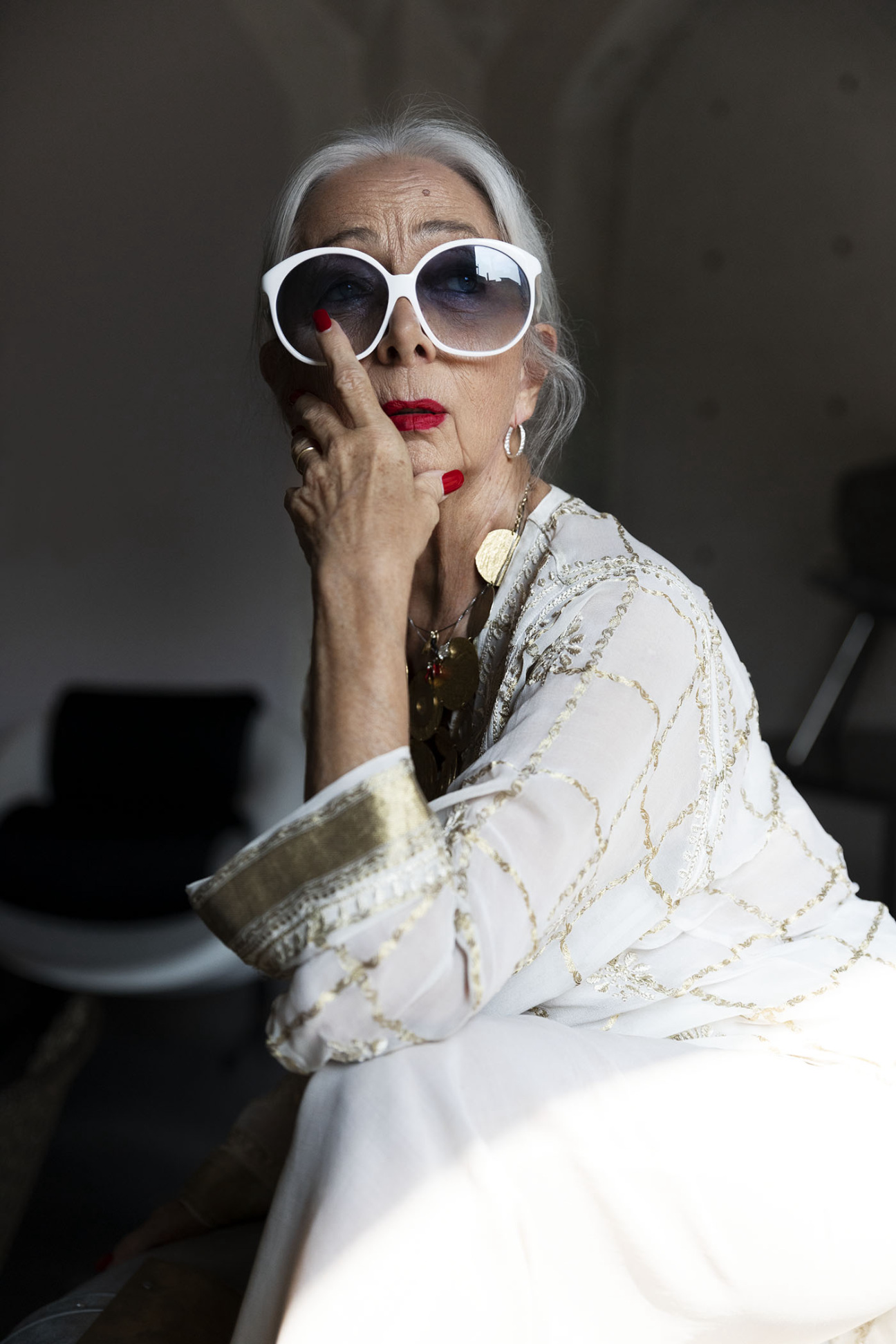
In CULTURED's new column, Quick Study, Design Editor-at-Large Colin King holds a mirror to the state of design and to designers themselves, asking them to reflect on the ways that our culture filters through their work.
It’s all hands on deck at Rossana Orlandi’s gallery. The phone keeps ringing, assistants are shouting directions at one another, and new items arrive by the minute. Yet in the midst of final preparations for this year’s Salone del Mobile, during which she’ll present works by almost 90 designers, the maven of Milanese design has graciously shared her time.
Immediately identifiable in her white-framed spectacles—a trademark that has become too recognizable, she’ll divulge—the octogenarian curator is full of enthusiasm, humor, and knowledge that she is excited to share about her work and her city. After a long career in fashion, Orlandi opened her art and design gallery in 2002, and has since helped launch the careers of some of the industry’s most fêted names.
She does not believe in or subscribe to trends, and instead remains true to her “anarchic aesthetic” through blending the work of famous and emerging designers within her space—a true oasis in Milan. As the city hosts the world’s largest design event, Orlandi invites us in.
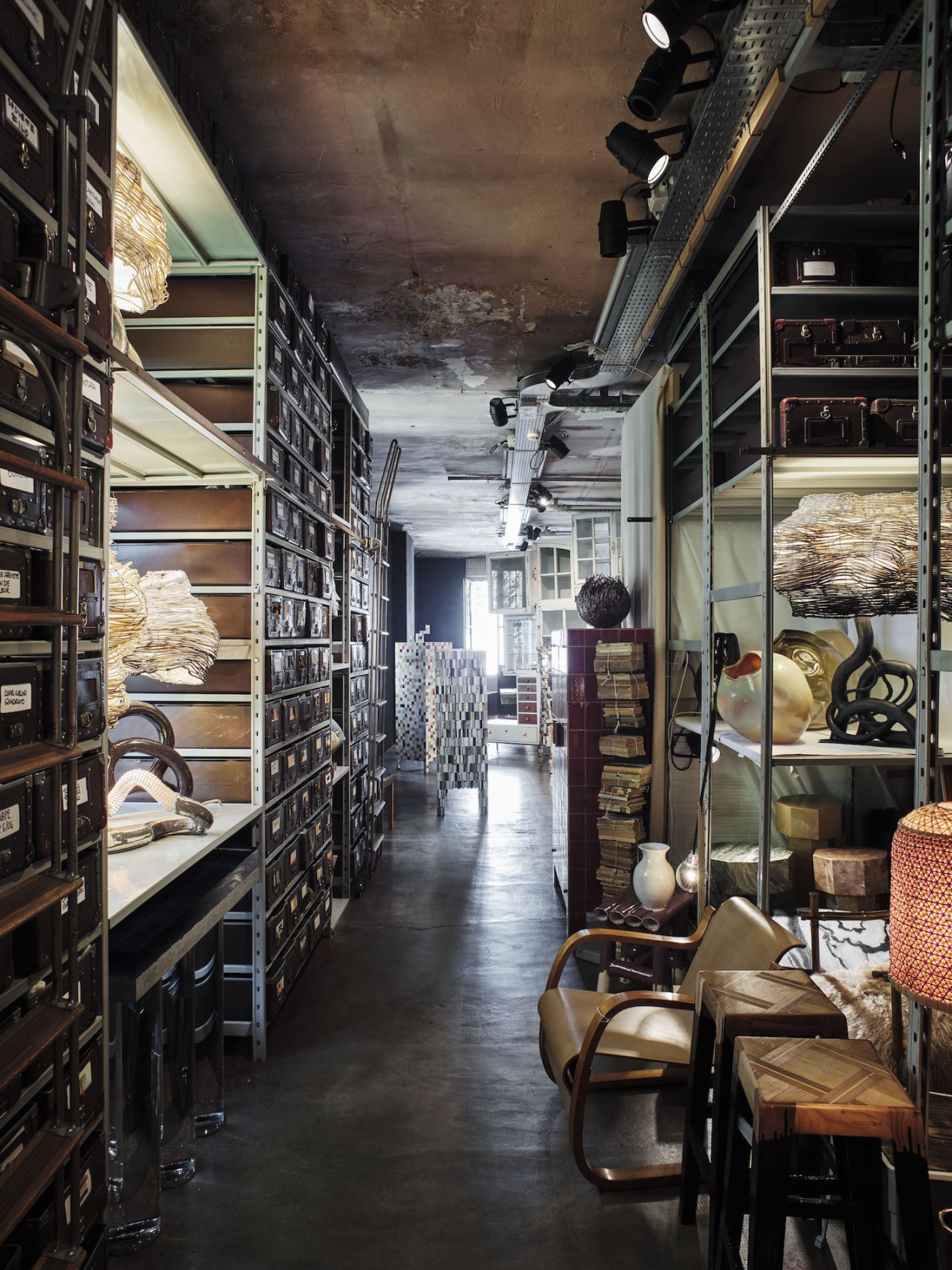
Colin King: Thank you so much for taking the time to speak with me. It was so important for me to talk to you, particularly in the context of Salone, because I feel like it's thanks to people like you that people like me exist. I’m curious, what drives you to discover and nurture emerging talent?
Orlandi: If I can be honest, it's become a bit difficult. When I go to the schools and to some fairs, when people see me, they try to put on a show, and it makes me very embarrassed. I'm shy! And if I don't like their work and I don't pay attention to them, they're not happy. From my point of view, I don't want to speak with people if I don't like the work. I much preferred it when I was absolutely unknown. But if I take off my spectacles, it's easy because they don't recognize me. [Laughs]
King: But you have such beautiful blue eyes! I would recognize you easily. Now, the design industry as a whole, especially in America, is often criticized for a lack of diversity. How do you ensure that your gallery represents a wide range of voices and perspectives?
Orlandi: Because I'm super open. Whatever pieces are good, whatever ideas are good, why not keep them in my gallery? I am very excited to do so. I have an anarchic aesthetic. I don’t follow one idea or another, I’m totally free.
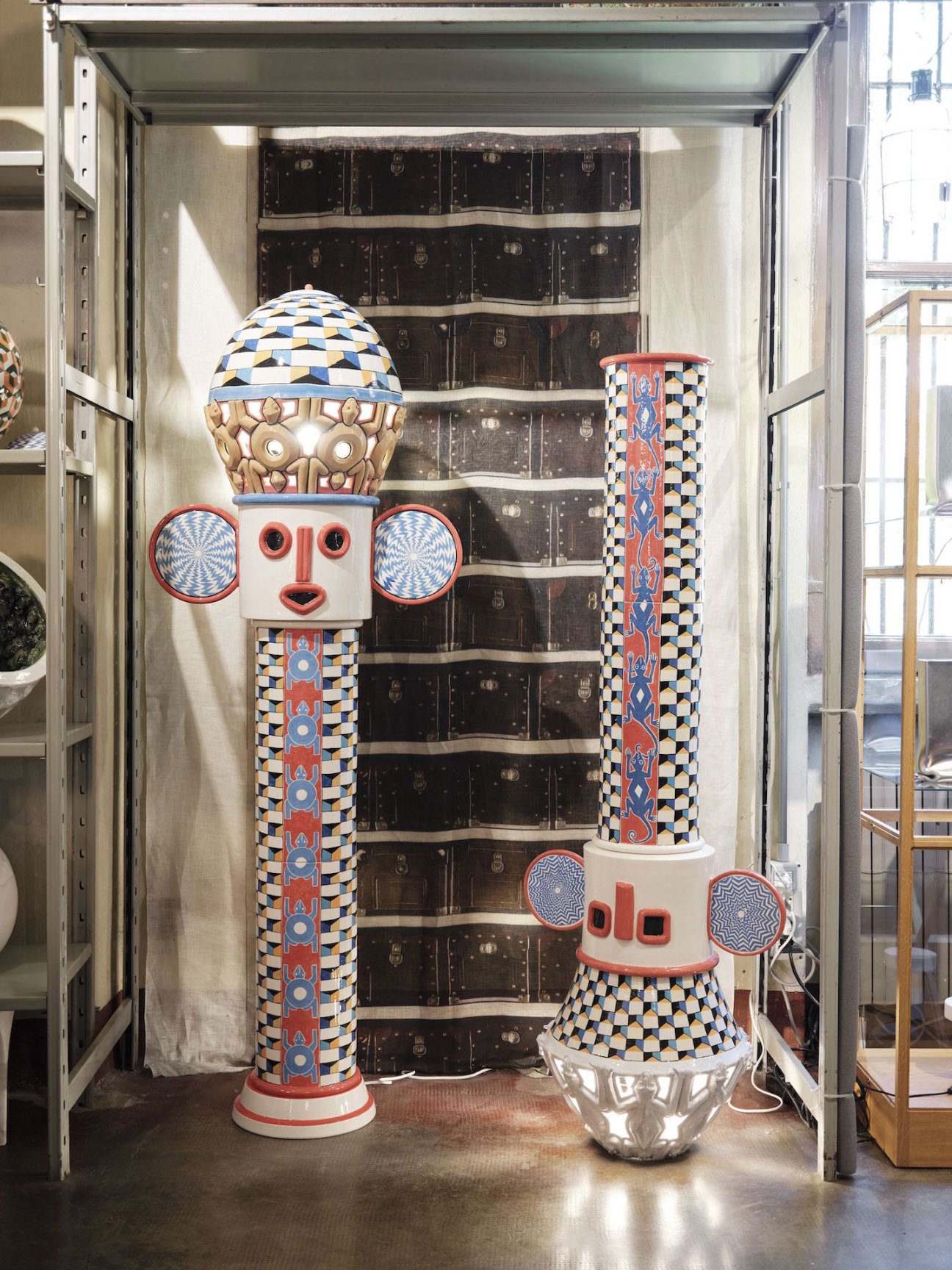
King: You mentioned you're shy. But you’ve gained a reputation as the "Signora of Design." Do you find that strange?
Orlandi: Sometimes I wonder why! My view is that you never arrive in any place, you're always on the way to something better. It's nice and it's very kind, but there’s always still a lot of work to do, and a lot of things to increase and to improve. I hope people can see that there’s a lot of love around me. All I want is to be simple, to be honest, to be sincere, to be myself, and everybody should do the same. I'm not frightened of the truth. And I detest lies.
King: When you look back at your career, what would you say have been the most significant or defining moments that you’re most proud of?
Orlandi: There are so many. My career has been all about discovery. I was working in fashion, and then became tired of fashion. It was no longer exciting, even though I lived at the base time for fashion. So I started to do [what I’m doing now] because I've always been a collector. I found so many amazing people, totally different from the fashion world. Frankly, the way of thinking in the design world is just like mine. We have real emotion, but it’s not pie in the sky.
King: Who are your friends and confidants in the industry? Who do you look to for advice?
Orlandi: One person I always call for advice is Giulio Cappellini, who I’ve known for 45 years. That’s a very long time…
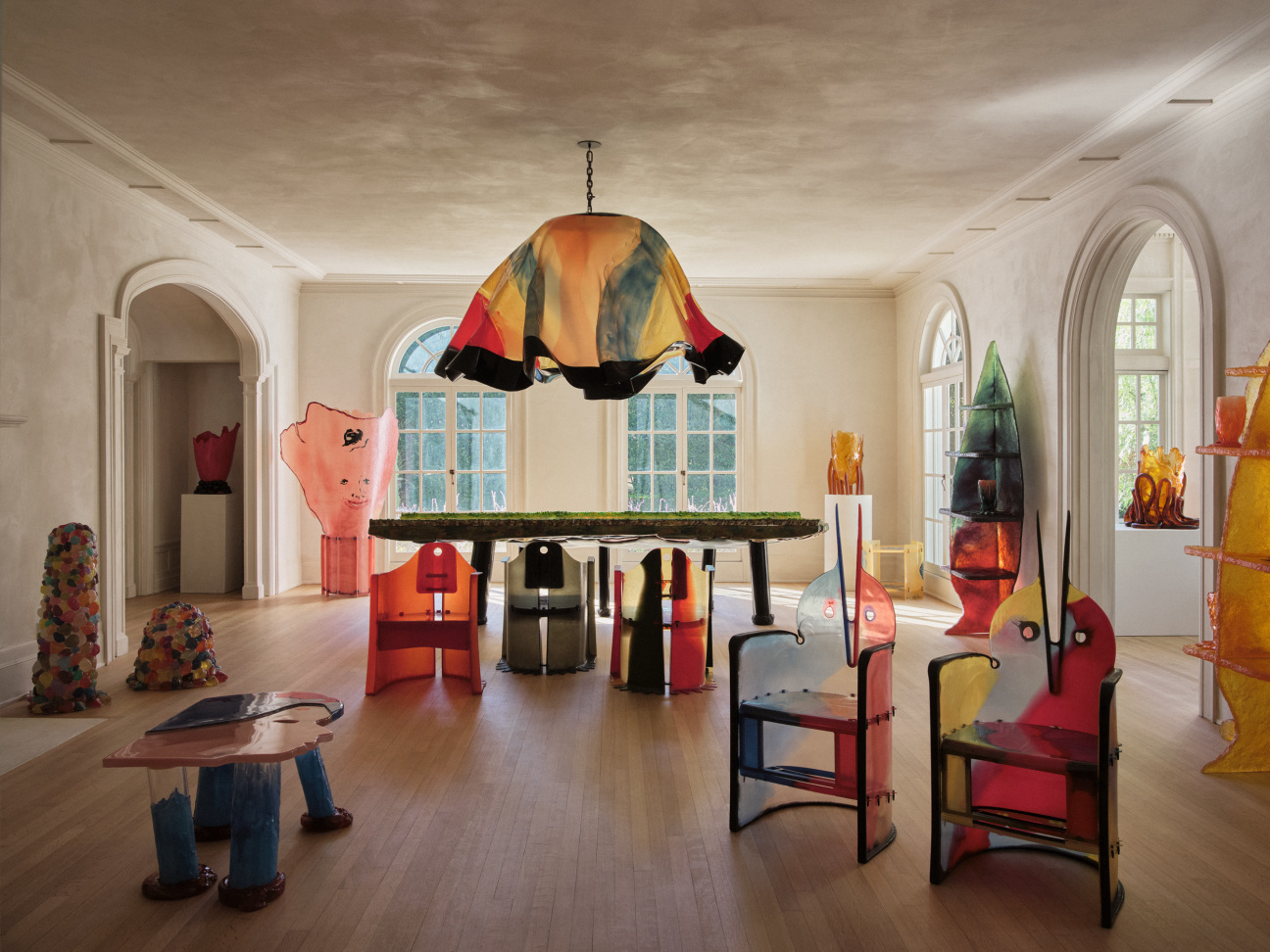
King: It would be remiss of us not to mention the great designer, Gaetano Pesce, who we sadly lost just last week. Do you have any stories or fond memories of him that you’d like to share?
Orlandi: It's such a big shame. And what’s horrible is that we were saying: “Shall go out for dinner? Yes, but not today. Maybe next time, or whenever you can.” And there's not a next time. I have so many stories, and lots that if you published them, we’d get in trouble. [Laughs] He was a Latin lover and playboy, but he and I were just friends. I loved him. And last year, when he came to Salone del Mobile with Luisa Delle Piane, he’d done such beautiful work. But I couldn't see him because I had to stay in my gallery. I’ve lost a great friend. And Italo Rota, too. Another incredible person and a super friend, who we’ve lost.
King: I’m so sorry. There are so many amazing designers based in Milan, it’s such an important design capital, and it's also your home. How have you seen it change and evolve over the decades?
Orlandi: Milan was once a super closed city. I don’t live outside of the center, but I’m not right in the center either. When I opened my gallery, none of my friends came to see my place because it was too far away. So for my first exhibition, I sent the invitation as a passport, saying: “Don't be shy, you have your passports.” But I have to say that after Expo Milano [in 2015], it changed completely. It opened the doors, opened the gardens, people became much more curious, and Milan became much more international. Now there’s plenty of bars and nice places to go out. I’m so glad.
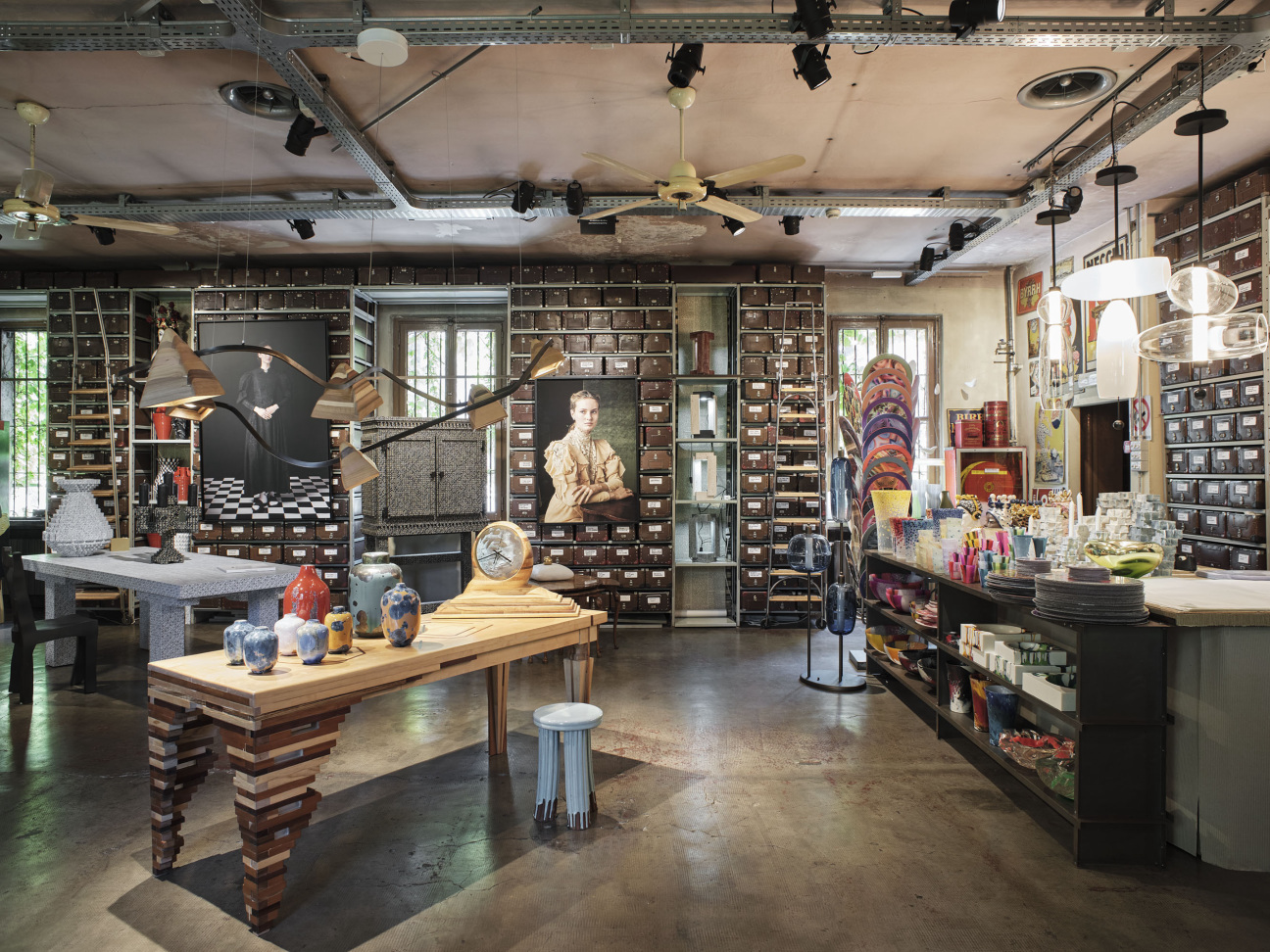
King: Back to the present—what are you excited to show during this year’s Milan Design Week?
Orlandi: There will be so many designers [in my gallery]. We have almost 90 projects, some super cool and beautiful projects about sustainability and responsible design, using sustainable materials. For example, Alessandro Ciffo did a fabulous collection with recycled silicone that you will see. Then there’s Michaela D’Angelo of Mida-Lab, who creates lamps using inspiration from nature, and David Taylor whose work I love too. CELO1, the first time I introduced them they had interesting mirrors made with ink, so I'm very curious to see them again.
King: Finally, what advice or recommendations would you give to someone visiting Milan for the first time, perhaps outside of Salone?
Orlandi: It depends on what they like. Of course, if you want to do shopping, the center is really amazing. All the center is quite cool, although a bit too French now. We feel much more like we’re in Paris than in Milan, because they’ve bought everything. Don't miss out on Fondazione Prada, which is super cool. And the Triennale de Milano, which I think is fantastic. When you get inside, you really feel like you’re in a powerful place with a lot of energy and a lot of history behind it. And they’ve just opened a beautiful new area about materials.
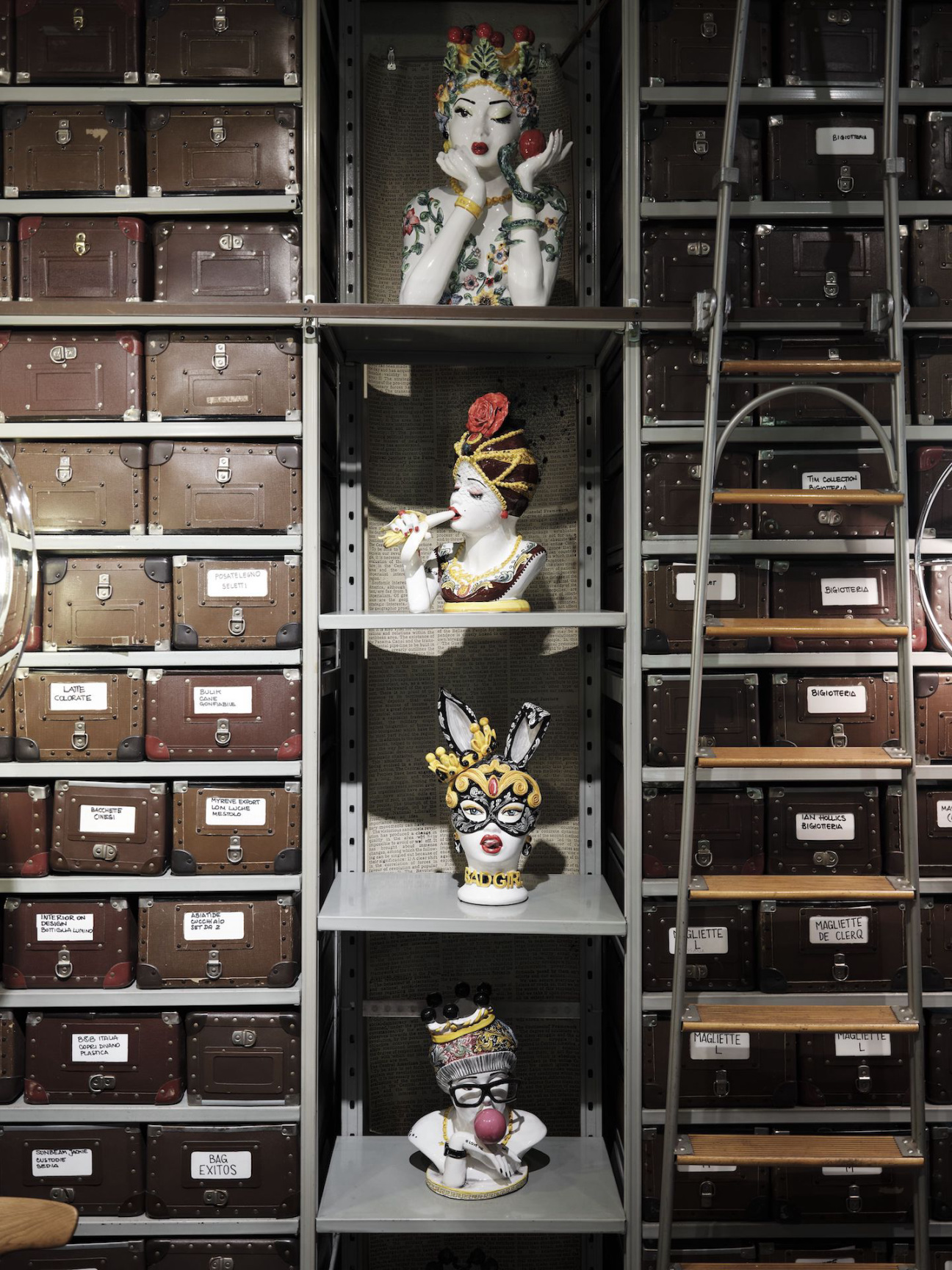
Another place to go is Fondazione Luigi Rovati, where there’s an amazing collection of sculptures—I’ve never seen so many beautiful faces. The space has been done by Mario Cucinella Architects, and it's got a great atmosphere. I love it. You know where else is very good? The Portrait Milano hotel. It’s really beautiful to go for aperitivo or to eat in the restaurant. Not the one in the basement, but the other one where they have the beef. And if you like ice cream, Gelateria Giova is incredible. I love it. You can taste all the flavors like different nuts, or lemon which is very good. It's a horrible place, but the ice cream is fantastic.
King: You have to just close your eyes and eat the ice cream.
Orlandi: Yes, exactly.
King: I love that you love ice cream.
Orlandi: It’s super. Super!

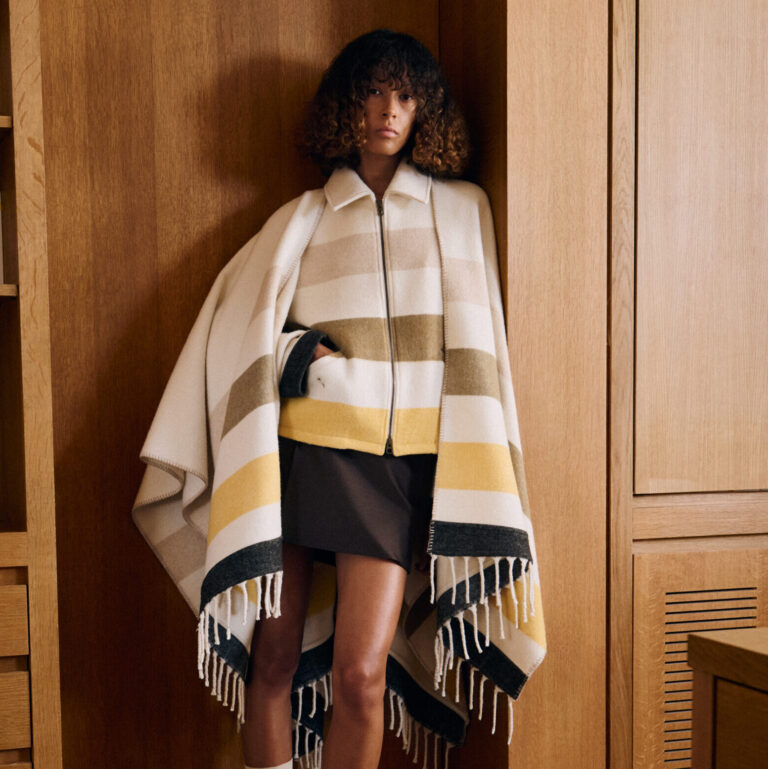
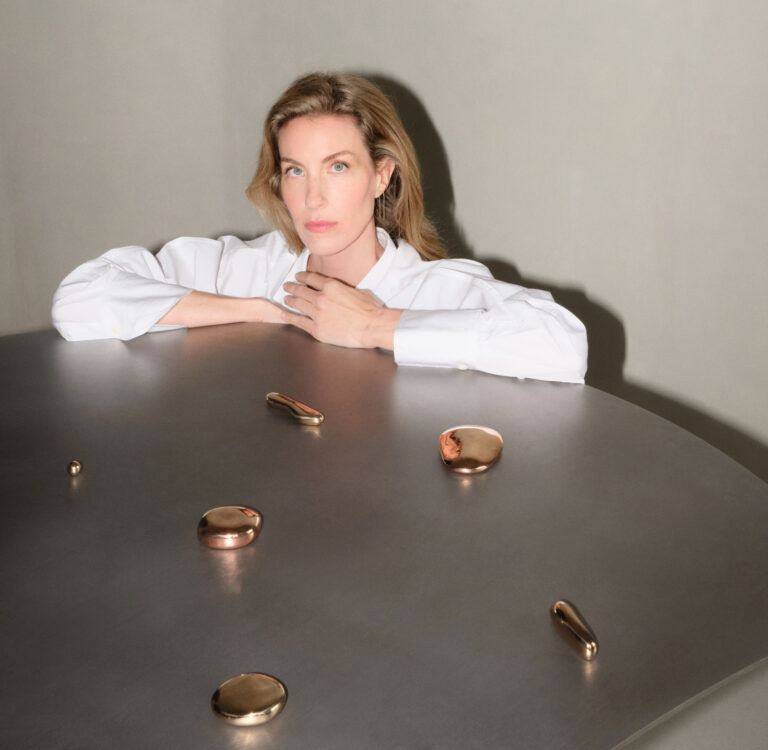
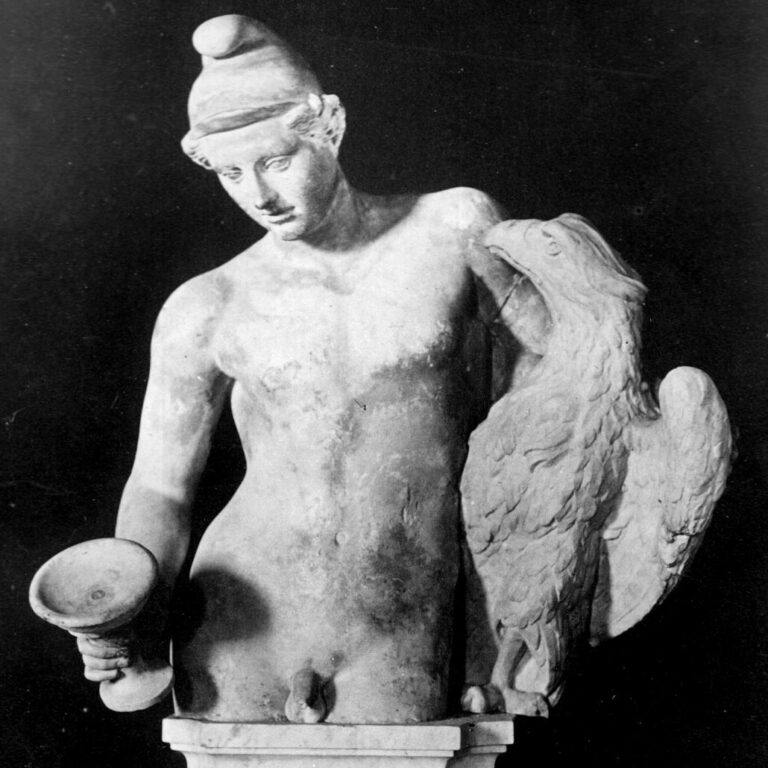
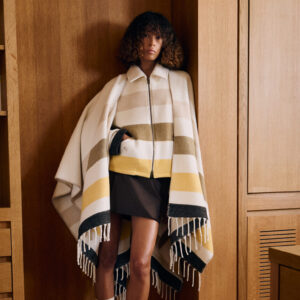
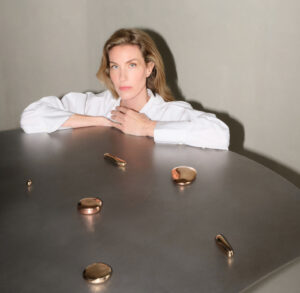
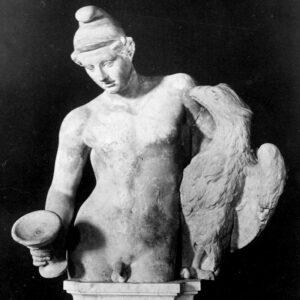



 in your life?
in your life?

